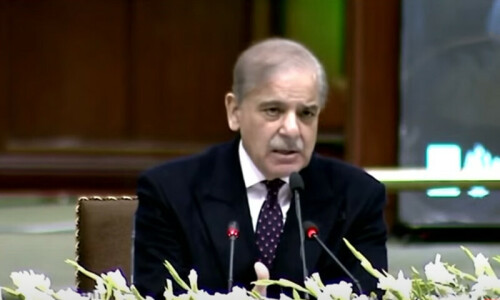SAO PAULO, Nov 1: For Chinese investors, Brazil is no longer the promised land. After making a big push into the South American giant in search of raw materials such as iron ore, as well as a promising market for their consumer goods, Chinese executives have grown frustrated with stagnant economic growth, heavy costs and what they see as a political and popular backlash against their presence.
As a result, Chinese investment is falling, and as much as two-thirds of the roughly $70 billion in projects announced since 2007 is either on hold or has been cancelled, according to recent studies and interviews with Chinese and Brazilian officials.
The unexpected decline, which investors and analysts say has little hope of reversing itself anytime soon, will deprive Brazil’s struggling economy of what once seemed like a sure-fire source of growth for years to come.
“The ardour for investment in Brazil is fading. Operating in Brazil is a huge challenge,” said Zhang Dongxiang, chief executive of the Brazilian unit of Bank of China Ltd, one of China’s four largest state-owned commercial banks.
In an interview, Zhang complained of growing hostility from the Brazilian public as well as “protectionist” policies passed by President Dilma Rousseff’s left-leaning government.
“Public opinion sometimes seems to be against foreign investment ... as if it makes local industry less competitive,” he said. “There are some antiquated ideas.”
While some Chinese companies are succeeding in Brazil, he said, “many are having doubts.”
The shrinking investment flows between two of the world’s biggest emerging markets raises questions about the strength of the so-called “south-south” capital movement, and comes as China undergoes a broad shift away from investment-focused policies and toward a more consumer-based economy.
To be sure, Chinese investment in Brazil remains well above what it was last decade. Companies such as CNOOC Ltd and China National Petroleum Corp, which last week bought rights to drill for oil in Brazil’s huge Libra offshore area, continue to see opportunities in Brazil.
Others with an eye on expansion include China Construction Bank Corp, which reached an agreement this week to buy 72 per cent of Brazil’s mid-sized lender Banco Industrial e Comercial SA for 1.62bn reais ($726 million).
Also, China remains Brazil’s largest trading partner, thanks to demand for its commodities, and exports have been steady.
But the euphoria of three or four years ago, when politicians hoped Chinese investment would fundamentally reshape Brazil’s trade flows and generate billions of dollars’ worth of badly needed new infrastructure, has clearly faded.
The outcome is especially disappointing for Brazil’s farming sector, which until recently saw China as its most likely saviour for a dilapidated network of roads, railways and ports that make it very challenging to export crops.—Reuters














































